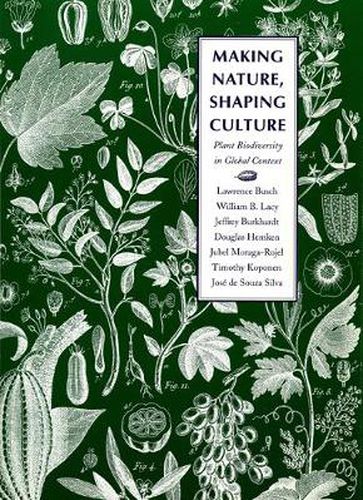Readings Newsletter
Become a Readings Member to make your shopping experience even easier.
Sign in or sign up for free!
You’re not far away from qualifying for FREE standard shipping within Australia
You’ve qualified for FREE standard shipping within Australia
The cart is loading…






For ages, farmers have domesticated plant varieties, while scientists have made nature through hybridization and other processes. This give and take-mediated through negotiations, persuasion, the marketplace, and even coercion-has resulted in what we call nature and has led to a homogenization of plant crops. Yet homogenization has led to new problems: genetic vulnerability, and the lack of systems to maintain plant germplasm of varieties no longer grown in the fields. This book addresses issues previously viewed as primarily technical concerning the germplasm debate: that is, how, what, and where to store the range of genetic materials necessary to reproduce plants. By examining Brazil, Chile, France, and the United States, the authors show how different cultures respond to the decline in genetic diversity. The findings show that the quest for uniformity in foods, agriculture, and environment eventually threatens everyone. The politicization of this debate is inevitable because the destruction of human cultural diversity goes hand in hand with the destruction of plant varietal diversity. The authors agree that responses to the controversies must involve food security, relinking of food with agriculture and the environment, revaluing traditional knowledge, and rethinking development. They stress that answers will be found not by experts acting unilaterally but through the democratization of scientific and technical exchange.
$9.00 standard shipping within Australia
FREE standard shipping within Australia for orders over $100.00
Express & International shipping calculated at checkout
For ages, farmers have domesticated plant varieties, while scientists have made nature through hybridization and other processes. This give and take-mediated through negotiations, persuasion, the marketplace, and even coercion-has resulted in what we call nature and has led to a homogenization of plant crops. Yet homogenization has led to new problems: genetic vulnerability, and the lack of systems to maintain plant germplasm of varieties no longer grown in the fields. This book addresses issues previously viewed as primarily technical concerning the germplasm debate: that is, how, what, and where to store the range of genetic materials necessary to reproduce plants. By examining Brazil, Chile, France, and the United States, the authors show how different cultures respond to the decline in genetic diversity. The findings show that the quest for uniformity in foods, agriculture, and environment eventually threatens everyone. The politicization of this debate is inevitable because the destruction of human cultural diversity goes hand in hand with the destruction of plant varietal diversity. The authors agree that responses to the controversies must involve food security, relinking of food with agriculture and the environment, revaluing traditional knowledge, and rethinking development. They stress that answers will be found not by experts acting unilaterally but through the democratization of scientific and technical exchange.